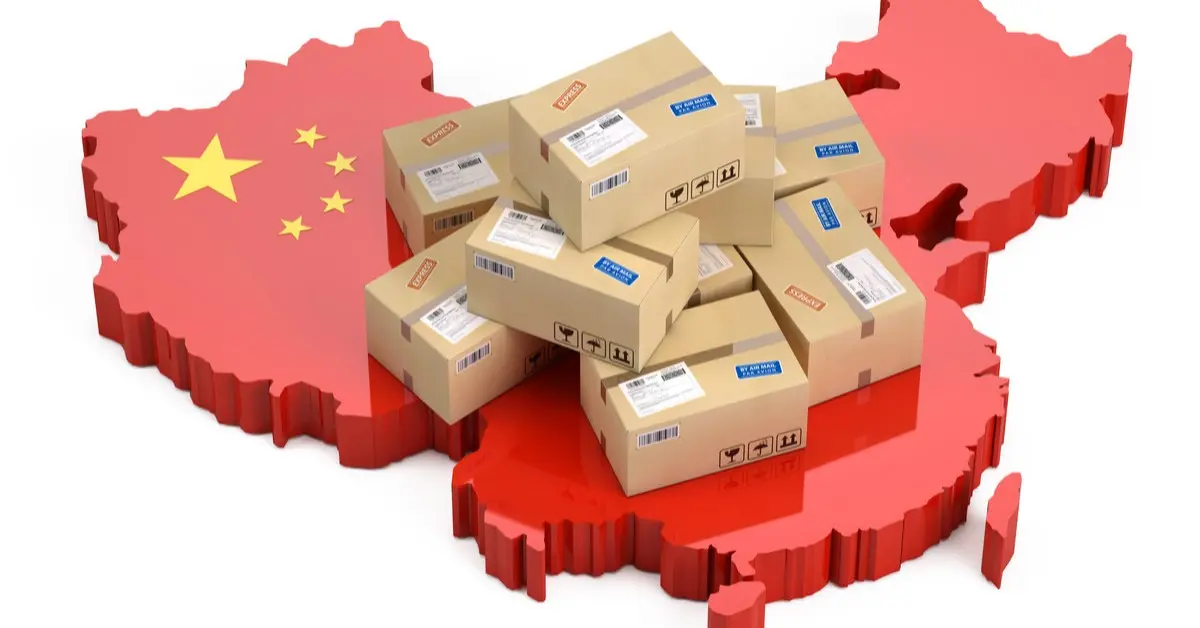Sourcing has become a crucial factor in today’s business development. Finding the right supplier is important for businesses to thrive, and China continues to be a popular destination for sourcing. However, it can be quite challenging for businesses to find reliable suppliers in China, especially if they do not have a physical presence in the country. This is where a China sourcing agent can prove to be extremely helpful.
Importance of sourcing in business development
Sourcing is essential for businesses to maintain a competitive edge. It is the process of finding suppliers who can provide the required goods and services at the right price and quality level. Effective sourcing can lead to reduced costs, improved lead times, and better supplier relationships
The Vital Role of a China Sourcing Agent in International Trade
A China sourcing agent serves as an intermediary between a business and potential suppliers in China. They help businesses find reliable and cost-effective suppliers in China while managing a range of activities, including supplier identification, price negotiation, quality control, and logistics.
Discovering an Effective China Sourcing Agent
Finding a reputable China sourcing agent is crucial for businesses looking to source from China. There are several methods businesses can utilize to find a reliable sourcing agent:
Importance of research
Conducting thorough research on potential sourcing agents is essential. Businesses can check online directories and marketplaces such as Alibaba.com, attend trade shows, and read online reviews to ensure they have all the necessary information about the agent before engaging them.
“Digital directories and virtual marketplaces
Online directories and marketplaces can be an excellent resource for finding sourcing agents. Businesses can search for agents according to their products, services, or location to find the appropriate agent that meets their needs.
Referrals from peers or industry experts
Businesses can ask for referrals from colleagues, peers, or industry experts who have experience working with China sourcing agents. This can save businesses a lot of time and effort in finding a reputable agent.
Choosing the Right China Sourcing Agent
Selecting the right China sourcing agent is critical for a successful sourcing process. Here are some factors businesses should consider when selecting a sourcing agent:
Credentials and track record of the agent
Credentials and the track record of the sourcing agent are essential considerations. Businesses should ensure that the agent has a proven track record in sourcing and can provide references. They should also check the agent’s credentials and validate their experience in the industry.
Communication skills and language proficiency
Effective communication is vital to ensure a smooth sourcing process. Language barriers can pose a significant challenge, so businesses should consider sourcing agents who are proficient in the local language as well as English.
Pricing models and fees
Pricing models and fees can vary among China sourcing agents. Businesses must understand the costs involved and ensure the agent is transparent about fees and costs.
A successful sourcing process involves various steps. Here’s a breakdown of the process:
Comprehending the Procurement Process
Initial consultation and requirements gathering
The first step of the sourcing process involves an initial consultation with the sourcing agent to discuss the business’s needs and requirements.
The agent will gather information about the products and services the business needs and help identify potential suppliers.
Sourcing and supplier identification
Once the agent has identified potential suppliers, they will conduct a thorough evaluation to assess their suitability. The agent may consider factors such as price, quality, production capacity, lead time, and logistics.
Product samples and quality control measures
The next step involves obtaining product samples and conducting rigorous quality control measures to ensure they meet the business’s requirements.
Price negotiation and finalization
Once the supplier has been identified, price negotiations can begin. The agent will negotiate a price that is acceptable to both the supplier and the business. Once both parties agree on the price, they can finalize the order.
Contract signing and payment process
Once the order has been finalized, the agent will help negotiate the contract terms and arrange for payment. This can involve various payment methods, including bank transfers, credit cards, or PayPal.
Managing the Sourcing Relationship
Effective management of the sourcing relationship is critical for a successful outcome. Here are some tips for managing the relationship:
Clear communication expectations
Businesses should set clear communication expectations with the sourcing agent to ensure that both parties understand each other’s expectations and requirements.
Managing time zones and language barriers
Managing time zones and overcoming language barriers can be challenging. Businesses should consider using virtual meeting solutions and translation services to overcome these barriers.
Setting milestone deadlines and delivery timelines
Setting clear milestone deadlines and delivery timelines can help ensure that the sourcing process runs smoothly and avoids delays.
Issue management and problem resolution
Effective issue management and problem resolution are critical to overcome any challenges that may arise during the sourcing process.
Maintaining a long-term relationship with your sourcing agent
Maintaining a long-term relationship with your sourcing agent can be beneficial for businesses. A strong relationship built on trust can improve sourcing outcomes and result in reduced costs and improved quality.
Tips for Successful Sourcing in China
Successful sourcing in China requires careful consideration of cultural differences and communication strategies. Here are some tips for effective sourcing in China:
“Effective Communication Strategies for Cultural Sensitivity”
Understanding cultural values and customs is vital for effective communication. Businesses should consider using translators and using appropriate language and communication styles.
Importance of building relationships and trust
Building strong relationships with potential suppliers is crucial for a successful outcome. Businesses should work on building trust, which can be achieved through regular communication, mutually beneficial negotiations, and delivering on commitments
Understanding cultural differences in business practices.
Dealing with cultural variations in business methods can present difficulties. “Businesses should seek to understand these differences to ensure effective communication and decision-making.
Being proactive with quality control measures
Proactively managing quality control measures is critical to ensure that the final products meet the business’s requirements.
Common Sourcing Challenges and How to Overcome Them
Sourcing from China can be challenging due to various factors. Here are some common challenges and how to overcome them:
Language and cultural barriers
Overcoming language and cultural barriers is one of the most significant challenges when sourcing from China. Businesses should consider employing bilingual staff or using translation services to overcome these barriers.
Quality control issues
Quality control issues can be challenging. Businesses should work with their sourcing agent to ensure that quality control measures are in place and regularly monitored.
Intellectual property concerns
Intellectual property concerns can pose a significant challenge when sourcing from China. Businesses should work with their sourcing agent to ensure that their intellectual property is protected.
Logistics and shipping challenges
Logistics and shipping challenges can create delays in the sourcing process. Businesses should work with their sourcing agent to ensure that logistics and shipping are effectively and efficiently managed.
Time zone differences and communication delays
Time zone differences can create communication delays, which can be challenging for the sourcing process. Businesses should consider using virtual meeting solutions to overcome these challenges.
Working with Manufactures and Suppliers in China
Sourcing suppliers and manufacturers in China varies depending on whether the supplier is large or small. Here are some differences to consider:
Differences between large and small manufacturers
Large manufacturers have more resources and can produce goods at a lower cost. Smaller manufacturers may offer more flexibility and personalized services.
Industry certifications to watch out for
Industry certifications can provide assurance of quality and compliance with specific standards. Businesses should consider supplier certification as a factor when selecting a supplier.
Managing product quality and safety concerns
Product quality and safety are critical considerations when sourcing from China. Extensive quality control measures should be in place to ensure that the products meet the business’s requirements and regulations.
Payment methods and price negotiation strategies
Negotiating payment terms and methods is essential. Businesses should consider various payment options and negotiate the best price to ensure cost-effectiveness.
Tools and Technologies for Streamlining the Sourcing Process
There are various tools and technologies available that can help streamline the sourcing process. Here are some examples:
Sourcing and procurement software
Sourcing and procurement software can help automate the sourcing process and provide insight into supplier performance.
Project management tools
Project management tools can help businesses manage projects, set milestones, and track progress.
Quality control and inspection apps
Quality control and inspection apps can help monitor product quality and ensure that the supplier meets quality requirements.
Video conferencing and communication platforms
Video conferencing and communication platforms can help businesses overcome language barriers and communicate more effectively with suppliers.
Working with a Sourcing Company vs. Working Directly with a Manufacturer
Businesses can choose to work with a sourcing company or manufacturer directly. Here are some considerations:
“Pros and cons of different methods.”
Working with a sourcing company provides businesses with access to their experience and expertise, while working directly with a manufacturer can be more cost-effective.
Cost considerations and pricing models
Businesses must consider the costs involved in both approaches and negotiate pricing models that meet their specific needs.
Quality control and supply chain management
Working with a sourcing company ensures that quality control and supply chain management are effectively managed, while working directly with a manufacturer can pose challenges.
Trends and Future of Sourcing from China
Sourcing from China is experiencing several changes and trends. Here are some trends to watch:
Rising costs in China
The cost of production in China is increasing, resulting in businesses exploring alternative sourcing locations.
The impact of technology and automation
Technology and automation are becoming more critical in the sourcing process, allowing for more cost-effective and efficient sourcing.
Altering global supply chains due to geopolitical events
Geopolitical events, such as trade wars, can impact global supply chains and how businesses source their products.
Importance of staying up to date on emerging trends
Staying up to date with emerging trends is critical for businesses to remain competitive and adapt to changes in the market.
Developing a Successful Partnership with Your China Sourcing Agent
Nurturing a successful partnership with a China sourcing agent involves building trust, maintaining open communication channels, and providing regular feedback.
Building trust through transparent communication
Maintaining transparency in communication helps build trust between businesses and their sourcing agent.
Providing feedback and constructive criticism
Regular feedback helps improve the sourcing process and can help identify areas for improvement.
Maintaining a positive and mutually beneficial relationship
Creating a mutually beneficial relationship can lead to long-term success and provide positive outcomes for both parties.
FAQs
Here are some frequently asked questions about working with a China sourcing agent:
What is a China sourcing agent?
A China sourcing agent helps businesses identify reliable suppliers in China and manage the sourcing process.
How do I find a reputable China sourcing agent?
Businesses can find reliable sourcing agents through online directories, referrals, and trade shows.
What are the benefits of working with a China sourcing agent versus directly with a manufacturer?
Working with a sourcing agent provides businesses access to their expertise and experience in the Chinese market.
What are some common challenges to sourcing from China and how can they be overcome?
Common challenges include language barriers, quality control issues, and logistics challenges. These can be overcome through effective communication and proactive quality control measures.
How much should I expect to pay for services from a China sourcing agent?
The cost of services varies according to the specific requirements of a business. Businesses should negotiate pricing models that meet their specific needs.
Conclusion
Sourcing from China can be a complex process, requiring careful consideration of various factors to ensure a successful outcome. Working with a China sourcing agent can help businesses navigate the complexities of the Chinese market and find reliable suppliers. By understanding the factors involved, businesses can develop successful partnerships with their sourcing agents and overcome any sourcing challenges they may face.








Hello!! My name is Annabella
I love to eat, travel, and eat some more! I am married to the man of my dreams and have a beautiful little girl whose smiles can brighten anyone’s day!